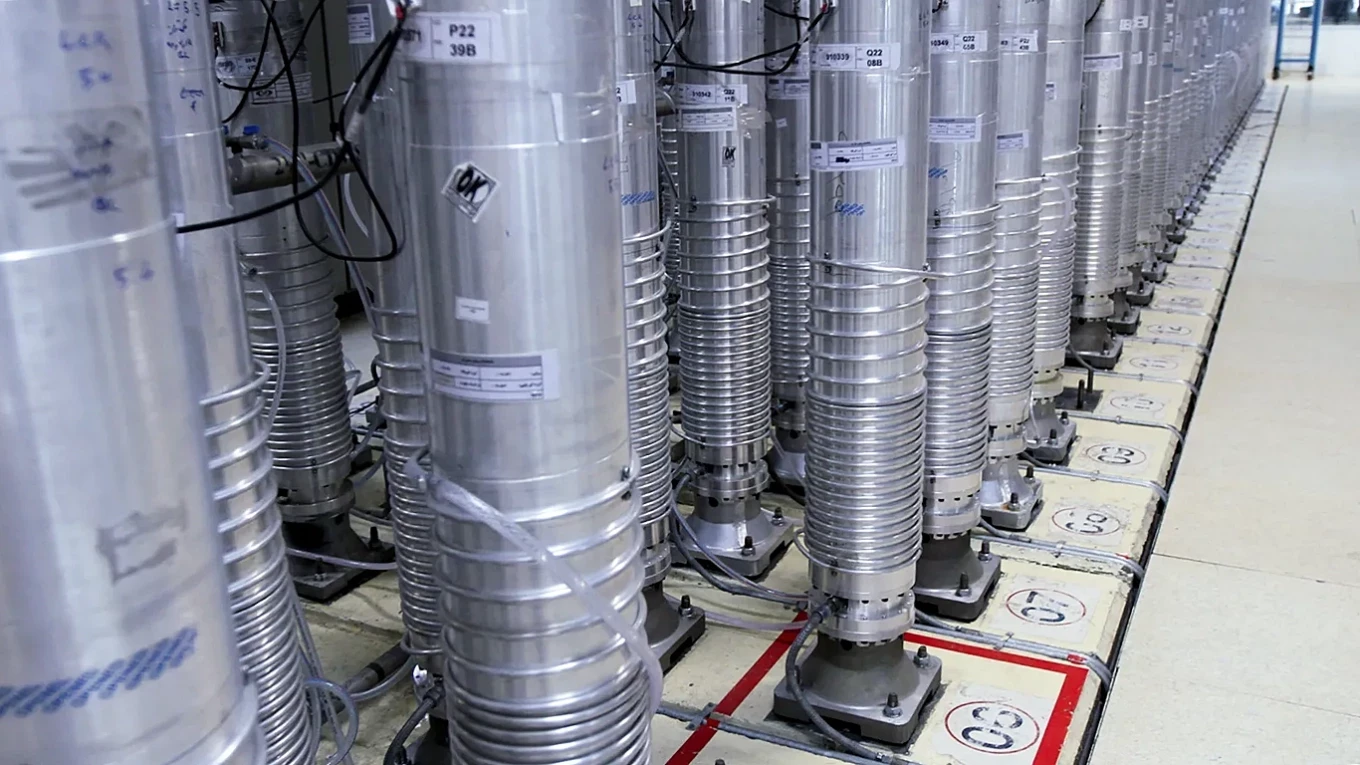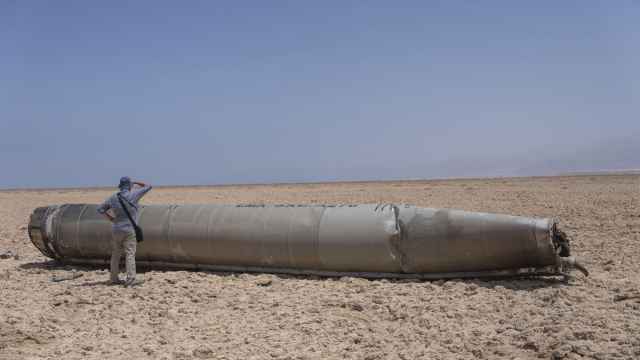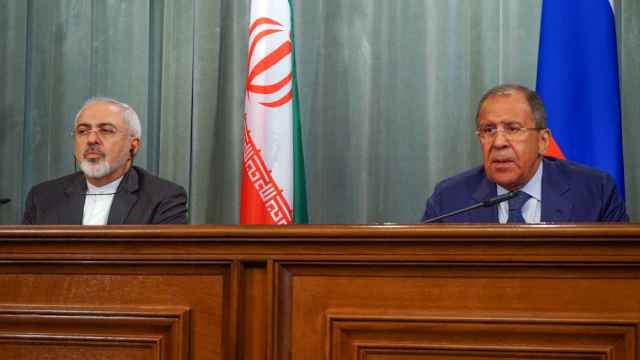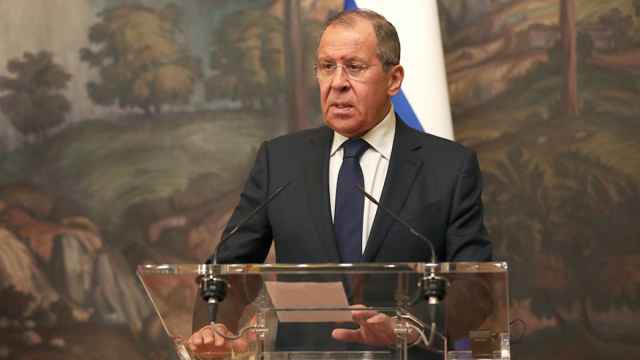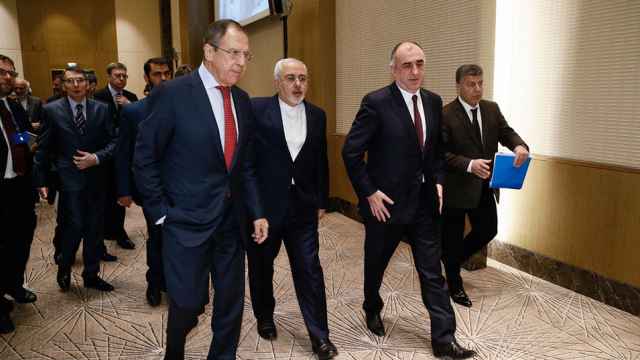Iranian nuclear scientists made a second secret trip to Russia last year in what the U.S. says was an effort to obtain sensitive technologies with potential nuclear weapons applications, the Financial Times reported Wednesday.
The November 2024 visit, which came after a previously reported trip in August 2024, was part of an emerging exchange between Russian military-linked research institutes and Iran’s Organization of Defensive Innovation and Research (SPND), a body the United States says is tied to Tehran’s armed forces and oversees nuclear weapons research.
The meetings mark the clearest indication yet that Moscow is willing to cooperate with Tehran on knowledge that could be relevant to nuclear weapons development, the FT said.
Available evidence suggests Iranian defense-linked specialists were “seeking laser technology and expertise that could help them validate a nuclear weapon design without conducting a nuclear explosive test,” Jim Lamson, a senior fellow at the James Martin Center for Nonproliferation Studies and a former CIA analyst, told the paper.
According to the FT, DamavandTec, a front company for SPND, organized the November 2024 trip for a group of Iranian laser specialists to St. Petersburg, where they met officials from Laser Systems, a Russian firm that develops laser technologies for civilian uses and classified military programs and is under U.S. sanctions.
The FT also reported that Andrei Savin, a former technical director at Laser Systems and now a senior figure at the St. Petersburg-based conglomerate Struynye Tekhnologii, traveled to Tehran in February 2025, where he met DamavandTec representatives and officials believed to be linked to SPND.
Savin is also a professor at Baltic State Technical University, one of Russia’s key military-technical universities.
The U.S. sanctioned DamavandTec and its CEO Ali Kalvand in October, accusing them of attempting to procure foreign-made goods “applicable to the development of nuclear explosive devices” on behalf of SPND and of facilitating travel for Iranian nuclear experts to Russia.
These meetings amount to “strong evidence that Russia was assisting Iran in its nuclear weapons-related research, with state-affiliated Russian institutions providing dual-use technology and knowledge transfer,” Nicole Grajewski of the Carnegie Endowment’s nuclear policy program told the FT.
The activities appear to have been authorized “at a high level on the Russian and Iranian sides,” she added.
The United States and Israel accuse Iran of seeking to develop a nuclear weapon, which Tehran denies, defending its “non-negotiable” right to develop a civilian nuclear program.
Russia says it is opposed to a nuclear-armed Iran, but it has defended Tehran’s right to use nuclear technology for civilian purposes.
International Atomic Energy Agency chief Rafael Grossi said in June that the watchdog has no concrete proof Iran was pursuing a bomb, but warned that Tehran’s lack of transparency was a cause for concern.
He added that Iran is enriching uranium to 60%, a level no other country in the world uses for civilian purposes and one that is technically almost equivalent to the 90% required for weapons.
Israel has maintained that Iran has already begun work on the components needed to detonate a nuclear weapon. Israeli officials warned Washington of its concerns before launching strikes on Iranian nuclear sites in June. U.S. President Donald Trump ultimately ordered U.S. strikes as well.
A Message from The Moscow Times:
Dear readers,
We are facing unprecedented challenges. Russia's Prosecutor General's Office has designated The Moscow Times as an "undesirable" organization, criminalizing our work and putting our staff at risk of prosecution. This follows our earlier unjust labeling as a "foreign agent."
These actions are direct attempts to silence independent journalism in Russia. The authorities claim our work "discredits the decisions of the Russian leadership." We see things differently: we strive to provide accurate, unbiased reporting on Russia.
We, the journalists of The Moscow Times, refuse to be silenced. But to continue our work, we need your help.
Your support, no matter how small, makes a world of difference. If you can, please support us monthly starting from just $2. It's quick to set up, and every contribution makes a significant impact.
By supporting The Moscow Times, you're defending open, independent journalism in the face of repression. Thank you for standing with us.
Remind me later.


